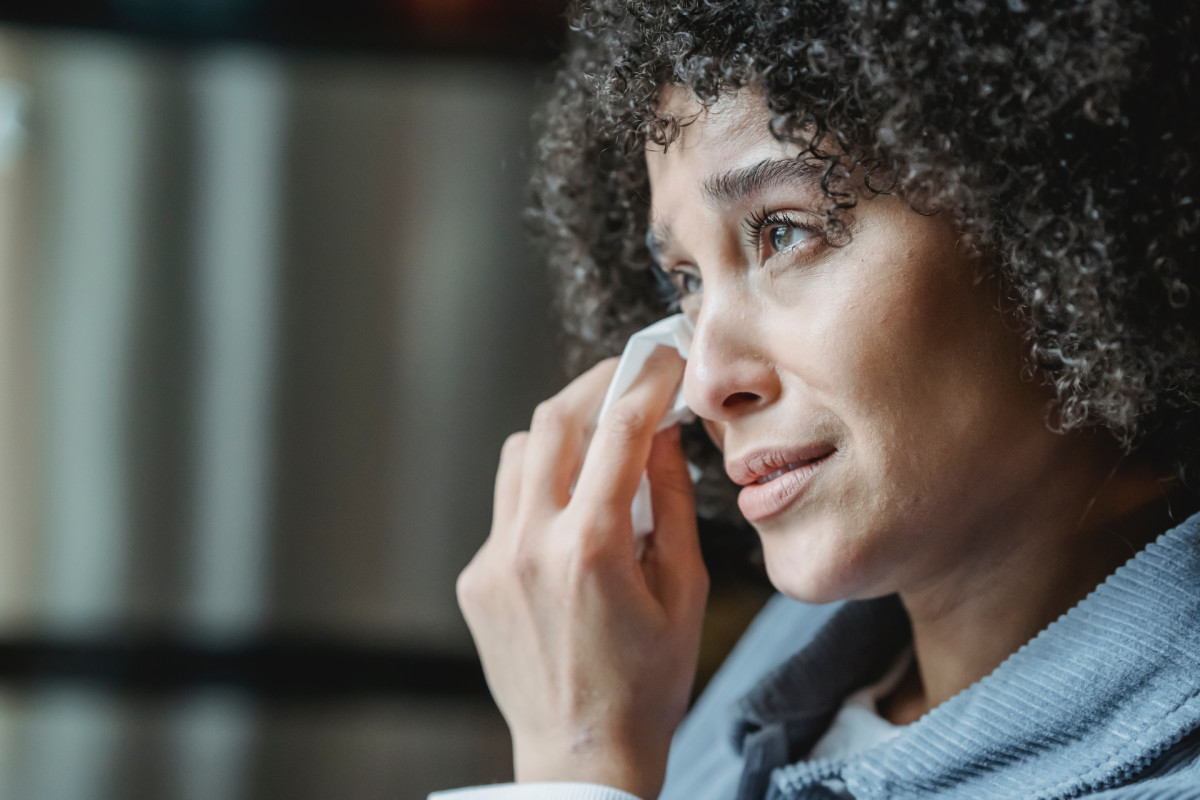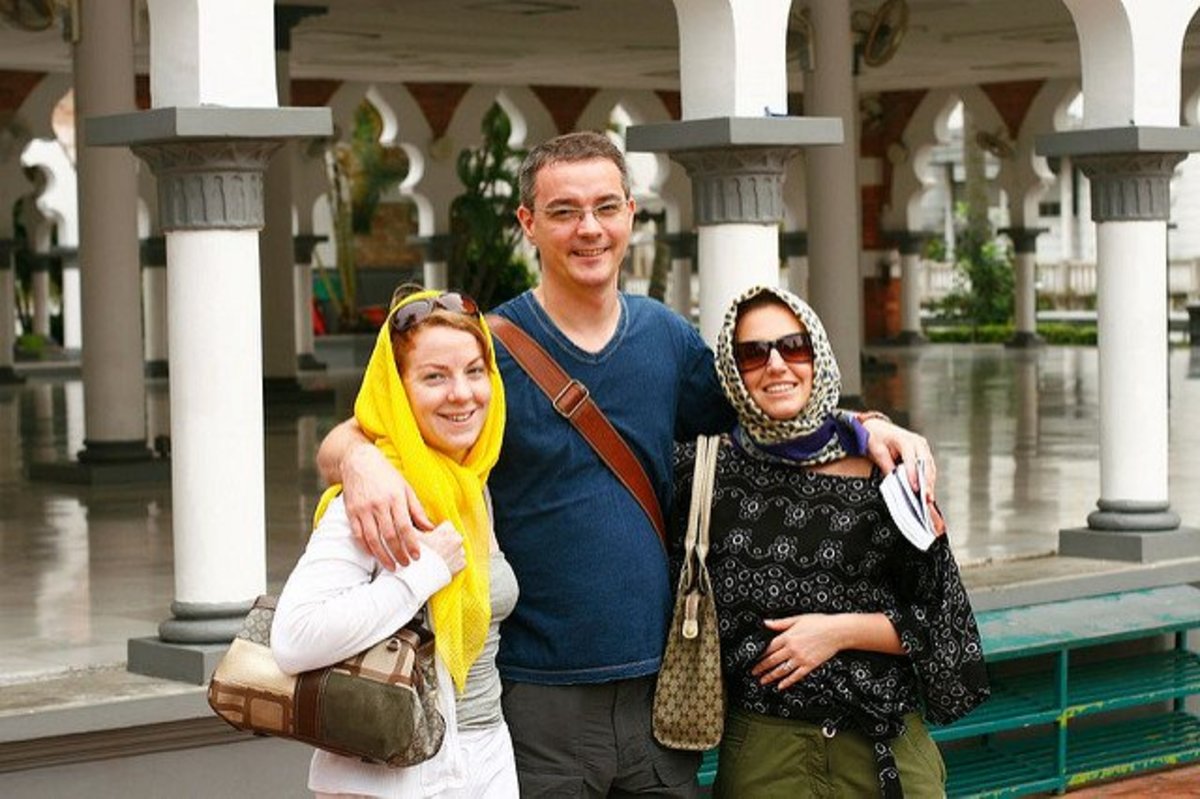Why You Keep Choosing the Wrong Partners (and How to Stop)

Why You Keep Choosing the Wrong Partners (and How to Stop)
So here you are again. You meet someone. The spark is strong. The chemistry is intoxicating. They say all the right things, make your heart race, and suddenly it feels like maybe, finally, this is it. But fast-forward a few weeks (or even months), and you're left wondering how you once again ended up in a relationship that leaves you feeling drained, anxious, and questioning your self-worth.
Why does this keep happening? Why do you keep falling for the wrong person? And most importantly—how do you break the cycle?
Let’s get into it, because if you’ve had it with emotionally unavailable partners, chaotic situationships, toxic relationships, or one-sided dynamics, you’re not alone. And you’re not broken. But you are repeating unhealthy patterns—and once you recognize them, you can start choosing differently.

1. You’re Mistaking Emotional Rollercoasters for Real Connection
Those fireworks on date one? That electric, can’t-stop-thinking-about-them energy? That fast-forward-to-forever feeling after just a few days?
Yeah. That’s not always love. Sometimes, it’s just your nervous system responding to familiar dysfunction.
If your childhood relationships were inconsistent—warm and loving one moment, cold or unpredictable the next—you may have wired your brain to associate uncertainty with affection.1 Therefore, when someone gives you mixed signals or keeps you guessing, it doesn’t feel alarming—it feels intoxicating. Like home.
Sudden emotional highs and lows trigger dopamine spikes, chemical surges similar to the ones we experience during addiction.2 That’s why the chase feels so good, and why it’s so hard to walk away, even when you know they’re not right for you. You’re not falling in love—you’re reliving a pattern.
How to stop: Slow it way down. Give yourself a 30-day emotional probation period before declaring someone your soulmate. Don’t confuse adrenaline with compatibility. Instead of asking, “How strong is our spark?” ask, “How safe and calm do I feel around them?” The right relationship won’t leave you guessing. It won’t spike your anxiety. It will soothe your nervous system rather than inflaming it.

2. Your Attachment Style Is Picking Your Partners
Do you ever wonder why you keep falling for the same emotionally unavailable types, even when you know fully well they’re bad for you? It’s not a coincidence. It’s your attachment style calling the shots.
If you have an anxious attachment style, you may be subconsciously drawn to avoidant partners—the ones who seem cool, independent, or emotionally distant. Why? Because your brain is trying to resolve unfinished emotional business. You’re wired to seek love from someone who withholds it, hoping this time, you’ll finally earn it.2
This push-pull cycle—where you chase and they withdraw—can feel strangely familiar, even addictive.3 Instead of seeing their emotional distance as a red flag, you interpret it as a challenge. You double down, thinking if you just try harder, you can make the relationship work.
This dynamic is common in what’s known as the anxious-avoidant trap. It mimics early relational wounds, keeping you stuck in a pattern of longing, insecurity, and emotional starvation.4
How to stop: Learn your attachment style. The four primary styles—secure, anxious, avoidant, and disorganized5—can shape everything from who you choose to how you communicate. If you tend to feel anxious or clingy, try dating someone who is securely attached. They might not spike your adrenaline, but they will offer something even more powerful: emotional safety.
At first, secure partners might seem “boring” simply because they are not triggering your anxiety. But what you’re really experiencing is the absence of drama. Start seeing consistency as sexy. Choose the calm connection over the chaos. It’s not dull. It’s healing!
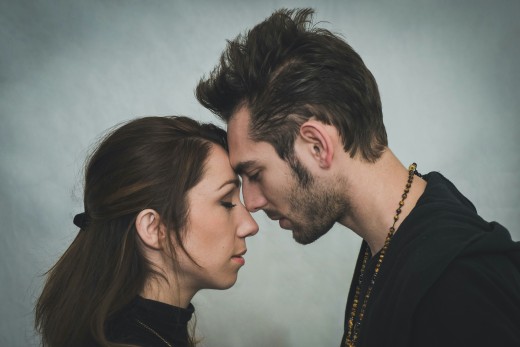
3. You're Dating from Your Wounds, Not Your Worth
Do you find yourself thinking, “I’m too much,” or “I’m not enough,” or perhaps even, “If someone just chooses me, I’ll finally feel okay”?
When these beliefs run the show, you’re not choosing partners based on compatibility. You’re trying to fix a feeling. You’re not dating from self-worth. You’re dating from unresolved wounds.
And here’s what happens: you tolerate breadcrumbing, ghosting, criticism, or emotional unavailability—not because it feels good (it doesn't!), but because part of you believes that’s what you deserve. If you grew up believing love had to be earned through performance, self-sacrifice, or people-pleasing, you may now associate proving your value with being loved.6
Low self-worth leads you to chase validation instead of alignment. You’re trying to “win” love instead of receiving it freely. That’s why healthy partners may feel unfamiliar or even uncomfortable—because they don’t trigger the chaos you’ve mistaken for connection.
How to stop: Heal the wound. Start by identifying your core belief: “I’m not lovable unless I prove it” or “If I don’t perform, they’ll leave.” Then challenge it. Use therapy, journaling, and inner-child work to rewrite those scripts. When you date from self-affirmation rather than desperation, you stop chasing love and start choosing it.
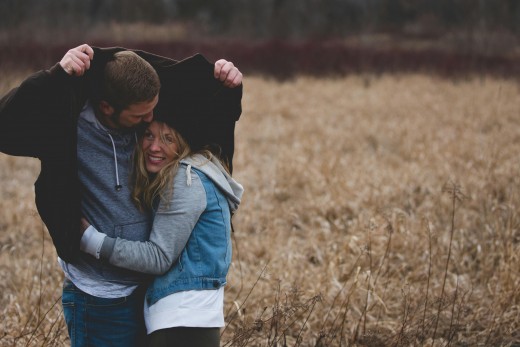
4. You Overlook the Green Flags
Have you ever gone on a date with someone nice and thought, “They’re great ... but I just didn’t feel a spark”?
If your nervous system equates safety with boredom, you might be conditioned to overlook green flags: consistency, kindness, emotional availability, genuine interest. These things don’t spike your adrenaline—but that’s exactly why they’re good for you.
Green flags to look for:
-
They follow through on what they say
-
They’re emotionally responsive
-
They express interest without pressure
-
You feel relaxed, not anxious, in their presence
-
You can talk through issues, not walk on eggshells
How to stop: Stop chasing the spark and start tracking the slow burn. Notice how your body feels around people—tight and on edge, or grounded and open? Give the emotionally healthy ones a chance before writing them off as boring.
What’s most likely to make you ignore a red flag in a potential partner?

5. You Ignore Early Red Flags Because You're Afraid to Start Over
Let’s be honest—sometimes, the red flags aren't always subtle. There are stinging backhanded compliments, inconsistent texts that leave you wondering where you stand, that gnawing gut feeling that something is wrong.
Everyone else sees these flashing warning signs clearly, but somehow, we choose to look away. Why?
Because we’re tired of starting over. Because we’re hopeful they’ll change. Because we think we can fix them. Because admitting it’s not working feels like admitting failure.
So we stay. We push ourselves to do more, be more. We tell ourselves it’s “just a rough patch.” We invest more time, hoping it will finally start to feel right.
How to stop: Reframe leaving as exercising strength, not failure. Every time you choose to walk away from something misaligned, you’re creating space for something better. Get comfortable ending it early if something feels off. You don’t owe anyone endless chances at your peace.

You're Falling in Love With Potential
You love their ideas, their dreams, and the way they could be—if only they healed, grew up, stopped drinking, went to therapy, or just got it together.
But here’s the deal: Dating someone’s potential is like buying a house based on the remodel you hope to do someday—when you don’t even own a toolbox.
Falling for potential is often code for emotional caretaking. You play the therapist, the coach, the life manager because it gives you a sense of purpose. However, the problem with that is that ultimately, you will burn out. And you will resent them for not becoming the person you imagined.
How to stop: Date who they are, not who you hope they’ll become. Ask: If they never changed a thing, would I be happy long-term? If the answer is no, believe them when they show you who they are right now—not who they might be later.
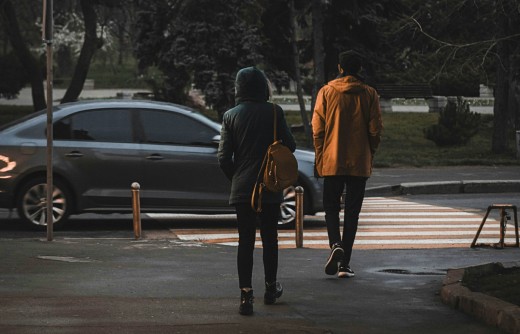
7. You’re Terrified of Being Alone
Loneliness can feel brutal. The silence. The empty bed. The sense that everyone else has someone. So you settle for someone—anyone—to avoid that ache.
But nothing is lonelier than being with someone who makes you feel invisible. Choosing a relationship out of fear of loneliness almost always backfires. You lose yourself in the connection and end up feeling even more alone.8
How to stop: Build a life so full that a relationship becomes an enhancement, not an escape. Deepen your friendships, travel solo, try new hobbies. Learn to enjoy your own company. Once you realize solitude isn’t punishment, it becomes a powerful filter. You stop letting just anyone in.
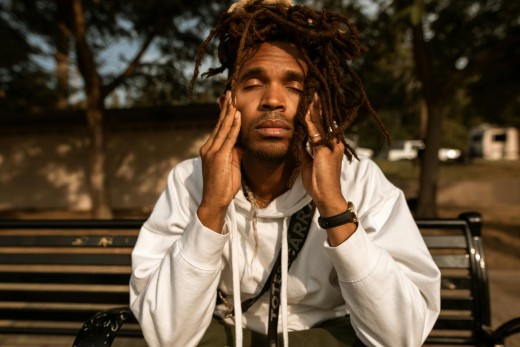
8. You’re Not Actually Clear on What You Want
Are you dating with a clear vision, or just vibes?
If you don’t know what you’re truly looking for, you’ll fall for anyone who seems perfect on the surface. A good job, witty banter, or mutual music taste—and suddenly, you're in deep with someone who meets all the external criteria but leaves you emotionally starved.
Why? Because you’re leading with chemistry instead of clarity. You’re choosing based on spark, not stability. You may have a physical “type,” but have you ever defined your emotional requirements in a partner?
Without that clarity, it’s easy to get swept up in charm and charisma and overlook whether your deeper needs are actually being met.
How to stop: Make a clarity list. Not a rigid checklist of hobbies or height, but a reflection of your emotional non-negotiables—the qualities that make you feel safe, supported, and deeply seen. Do you need vulnerability? Humor? Stability? Accountability? Affection?
Then date with discernment. Don’t bend your standards to match someone’s potential. Raise your standards to match the version of you that is healed. When you know what you truly need, you stop settling for surface-level connection—and start choosing love that feels safe and grounded.

The Bottom Line: You Can Break the Pattern
You’re not cursed. You’re not doomed to repeat this forever, but you do need to pause and ask: Who am I choosing, and why? Awareness is your first tool. Accountability is your second. And self-worth is your secret weapon.
You don’t have to be perfect to find love. You just have to be awake. So take a breath. Look at the patterns. And remember: You’re allowed to choose differently now.
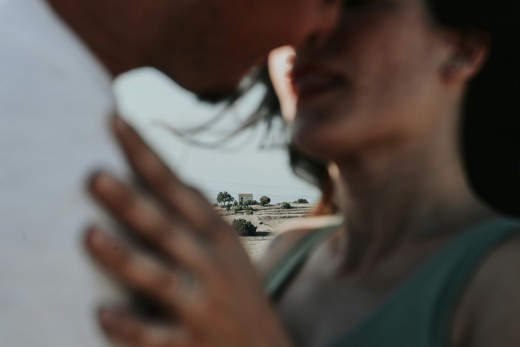
References
1 Psychology Today. (2022, June 30). 6 reasons why people stay in failing relationships. https://www.psychologytoday.com/us/blog/communication-success/202206/6-reasons-why-people-stay-in-failing-relationships
2 Psychology Today. (2023, March 3). 2 top reasons for being stuck in dysfunctional relationships. https://www.psychologytoday.com/us/blog/communication-success/202303/2-top-reasons-for-being-stuck-in-dysfunctional-relationships
3 Firestone, L. (2014, September 16). How your attachment style impacts your relationships. PsychAlive. https://www.psychalive.org/how-your-attachment-style-impacts-your-relationships/
4 Johnson, S. M. (2019, November 5). Why we love who we love. Greater Good Magazine. https://greatergood.berkeley.edu/article/item/why_we_love_who_we_love
5 Bowlby Centre. (2021). Understanding attachment theory. https://www.thebowlbycentre.org.uk/understanding-attachment-theory
6 Raypole, C. (2022, September 6). What does emotional baggage mean? Verywell Mind. https://www.verywellmind.com/what-is-emotional-baggage-5184693
7 Brown, M. (2020, August 18). Feeling stuck in your romantic relationship? Psychology Today. https://www.psychologytoday.com/us/blog/romance-redux/202008/feeling-stuck-in-your-romantic-relationship
8 Ellis, S. (2024, November 1). Why do I always attract toxic partners? Verywell Mind. https://www.verywellmind.com/why-do-i-always-attract-toxic-partners-5089055
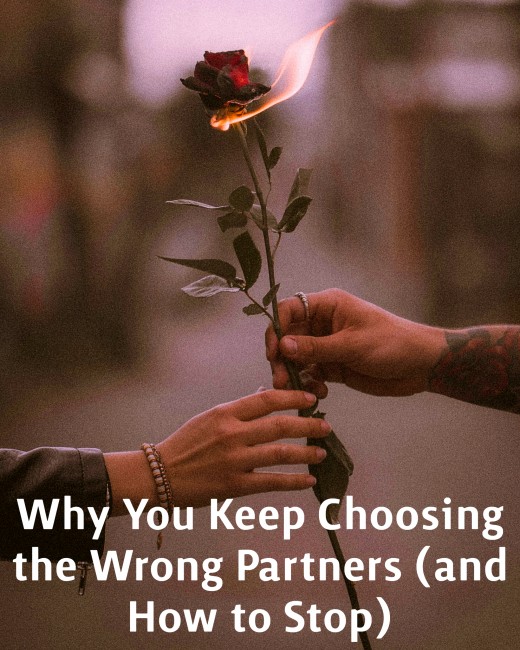
© 2025 Elaina Baker





